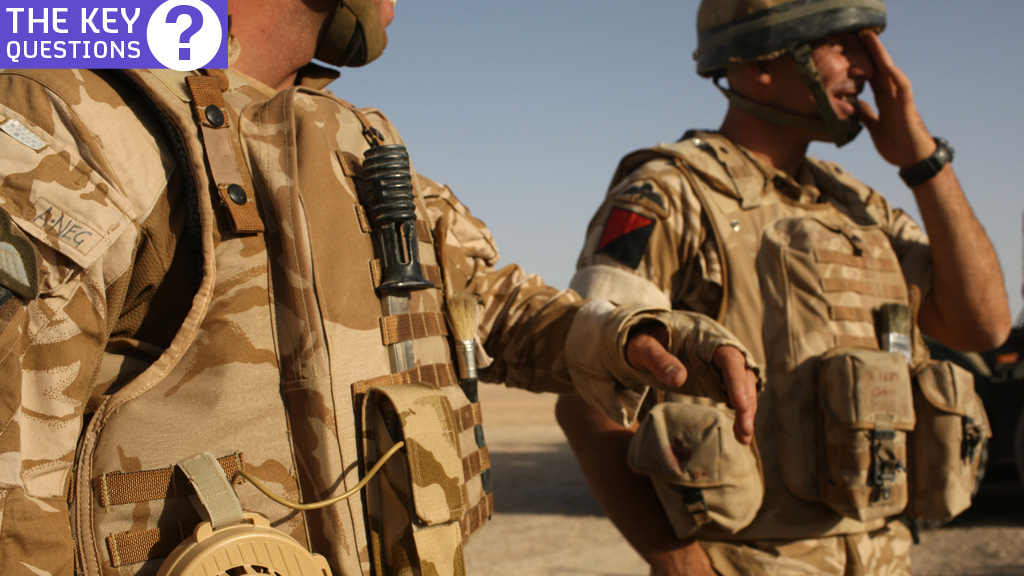Is UK military action in Syria legal? – the key questions
Parliament is due to meet on Thursday to debate military action against Syria. But how can the government make intervention legally sound?

Suspected chemical attacks in Syria last week drew strong condemnation from Britain and the US, and some form of military action now seems likely.
MPs are due to be recalled this week to discuss the prospect of military action in Syria. But what sway do they hold over the government’s final decision? And what else needs to be done for intervention to be made legal?
What might military intervention involve?
Until this week, Britain and the US were reluctant to offer significant military support to Syrian rebels for fear that weapons could fall into the hands of al-Qaeda militants or other disruptive groups.
Since last week’s suspected chemical attack, the prospect of using cruise missiles has emerged as a strong contender, but uncertainty remains about whether they would be used to target chemical weapons stores, the units used to launch them, other military targets or something symbolic to deter the Syrian regime.
No-fly zones still seem unlikely, after Britain and the US expressed concerns in June over open-ended costs and how long they might last. The extreme option of “boots on the ground” remains unpalatable after the human cost suffered by both countries since 2001 in Afghanistan, Iraq and Libya.
What legal hoops must the government jump through?
The United Nations is central to any perception of military intervention being legal, and all of its security council would need to approve any action. But continued opposition from permanent members China and Russia makes any new resolution unlikely.
Dapo Akande, lecturer in international law at Oxford University, told Channel 4 News that Britain would find it “very difficult to argue” that military action in Syria is legal without a resolution, even though Foreign Secretary William Hague has said it would be.
“The UK is in a very small minority of countries that believe it is lawful,” Akande said. “People wonder why it is that international law doesn’t allow for unilateral action in these kinds of cases, and it’s exactly about the question of whether it would do more harm than good.”
He added that military action could be given “legitimacy, if not legality” by a straight vote in the UN General Assembly of all its international members, but this approach has not been taken for decades, mainly due to concern among the security council that its authority could be undermined.

Does parliament matter?
Yes. And no.
There is no legal requirement for parliament to approve military action, but the main calculation is political: would the public accept an invasion that had not been approved by MPs? And would the parties themselves be happy with it?
The prime minister’s recall of parliament reflects concerns that his own MPs and the British people are wary of getting involved in another open-ended conflict.
David Cameron’s own words as leader of the opposition are worth remembering here: in 2006 he complained about the Labour government’s decision to send 4,000 troops to Afghanistan by announcing it “in the pages of the Sun newspaper” rather than through proper consultation with MPs.
What are the lessons of previous conflicts?
In short, know what your objectives are and get UN approval.
The UN granted a clear resolution in 2001 authorising military action in Afghanistan, but legal arguments behind the Iraq invasion in 2003 were far from clear cut. Sir John Chilcot’s inquiry into the lessons to be learned still has not reported, four years after being formed.
The invasion of Libya two years ago was based on resolution 1973 which authorised “all necessary measures” to protect civilians, although even here the full extent of approved action was disputed.
Limited Nato air strikes were used in Kosovo and Serbia in 1999 without UN approval, on humanitarian grounds, but remain exceptional.
Kosovo has been mooted in the US as a possible precedent for action in Syria, but despite widespread outrage at the chemical attacks William Hague could be on shaky ground without some form of UN approval.
-
Latest news
-
‘I violated my moral compass working for Trump,’ former lawyer testifies3m

-
Working class creatives in film and TV at lowest level in decade5m

-
Israeli police investigating attack on Gaza aid convoy4m

-
Biden announces major tariff increase on Chinese-imported green tech3m

-
‘If NHS can afford it, people with obesity should have Semaglutide,’ says weight loss expert5m

-




